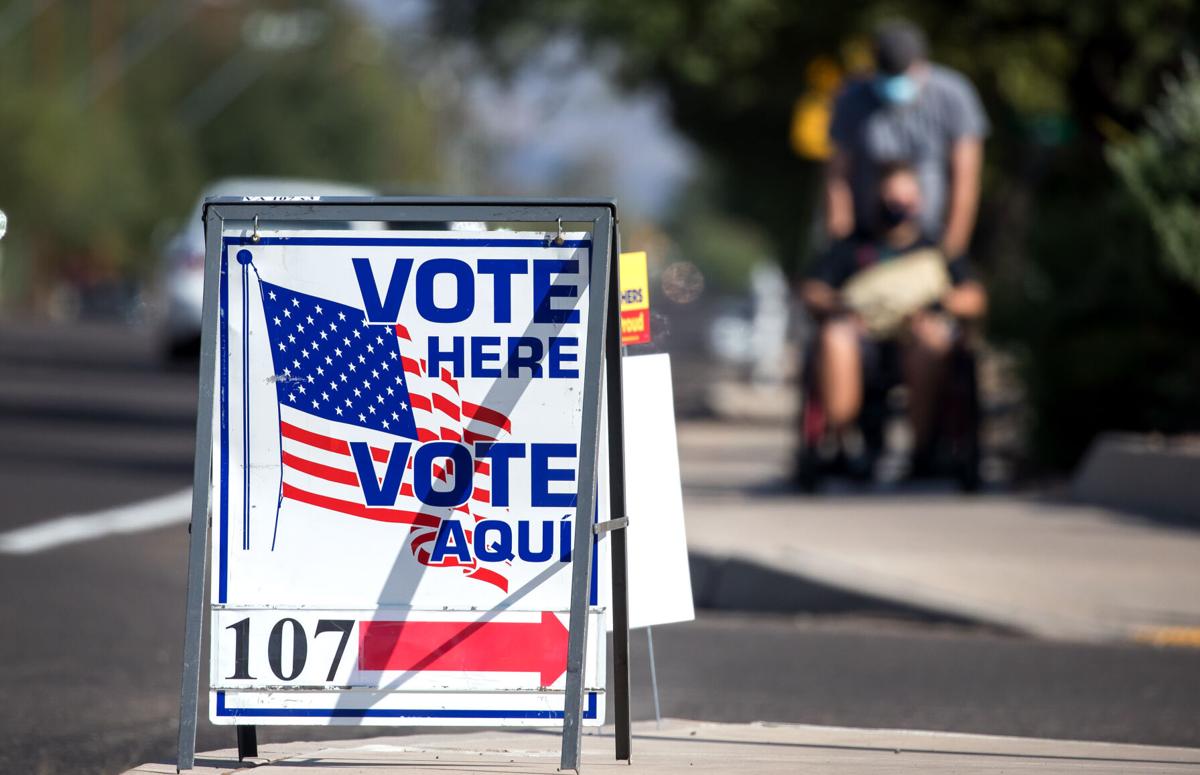PHOENIX — The Republican Party wants a “seat at the table’’ to support a controversial new law that requires proof of citizenship to vote for president.
New legal papers filed in federal court contend that Secretary of State Katie Hobbs and Attorney General Mark Brnovich may not be as interested in defending the legislation signed earlier this year by Gov. Doug Ducey as local, state and federal Republican parties.
The elected officials might be more interested in settling the case — or might lose — without participation of the GOP, said an attorney for the political party, Kory Langhofer.
Potentially more significant, Langhofer said if challengers succeed in overturning the law, that “could confuse voters and undermine confidence in the electoral process,’’ making it less likely that Republicans would come out and vote.
At issue is the kind of identification needed to register to vote.
A 2004 voter-approved law requires proof of citizenship.
But the National Voter Registration Act directed the federal Election Assistance Commission to create its own voter-registration form. It only requires that applicants avow, under penalty of perjury, that they are citizens.
Anyone using this form is allowed to vote only in federal races, meaning for president and members of Congress.
Arizona tried once before to enforce a proof-of-citizenship requirement for those using the federal form, only to be slapped down by the U.S. Supreme Court in a 2013 ruling. The justices said Arizona is free to demand proof of citizenship from those wanting to vote in state and local elections.
All that went pretty much unchallenged until the 2020 election when Joe Biden defeated Donald Trump in Arizona by 10,457 votes. That figure is close to the number of people who voted using the federal form.
As a result, state Rep. Jake Hoffman, R-Queen Creek, sponsored the legislation signed earlier this year by Ducey.
Hoffman conceded the Supreme Court ruling is binding on congressional races. But he contented the justices never addressed presidential races. He said that left Arizona free to impose a citizenship-proof requirement for those who use the federal form and want to cast a ballot in 2024 and beyond for president.
Republicans in the House and Senate, along with Ducey, went along despite legislative attorneys advising them it would provoke a lawsuit.
Days later, two separate lawsuits were filed in federal court.
Hobbs and Brnovich are tasked with defending the statute, but Langhofer claims there’s a problem with that.
“Defendants have no interest in the election of particular candidates or the mobilization of particular voters, or the costs associated with either,’’ he said, as opposed to the interest of the Republican Party and its branches.
State officials are acting on behalf of all Arizona citizens and have to consider various interests that might differ from those of the GOP, he said. These include the costs of defending the law and the desire of state officials to remain politically popular to “social and political divisiveness of the election issue,” Langhofer said.
“All these interests make defendants less likely to make the same arguments, less likely to exhaust all appellate options, and more likely to settle,’’ he said.
He said the Republican Party’s interests are not only ensuring that GOP registrants have an opportunity to vote, but also advancing the overall prospects of Republicans to get elected.
Langhofer told judges in both cases that Republicans need to be able to mount their own defense. He said their interests would suffer if the government officials lose the case or agree to a settlement.
One of the lawsuits challenging the law was filed by the group Mi Familia Vota. An attorney for the group, Daniel Arellano, said the legal issues go beyond the 2013 Supreme Court ruling. He said the state entered into a consent decree in 2018 where it agreed to protect the rights of certain individuals to use that federal voter registration form to sign up and to cast ballots for all federal elections.
Arellano also contends the measure was enacted based on unproven claims by GOP lawmakers that people not in this country legally are affecting election results. He cited comments by Hoffman that Arizona “cannot allow potentially tens of thousands of non-citizens to vote in our elections.’’
“This unsupported fear-mongering is plainly insufficient to justify the proof of citizenship restriction’s widespread burdens,’’ Arellano wrote.
The other lawsuit was filed by Living United for Change in Arizona, the League of United Latin American Citizens, the Arizona Students’ Association, and ADRC Action, which is the sponsor of a proposed ballot measure to reverse restrictions on voting enacted by the Republican-controlled Legislature and signed by the governor.





